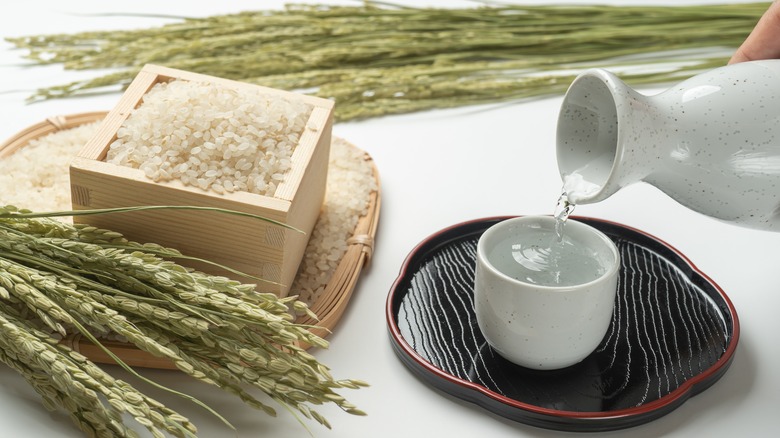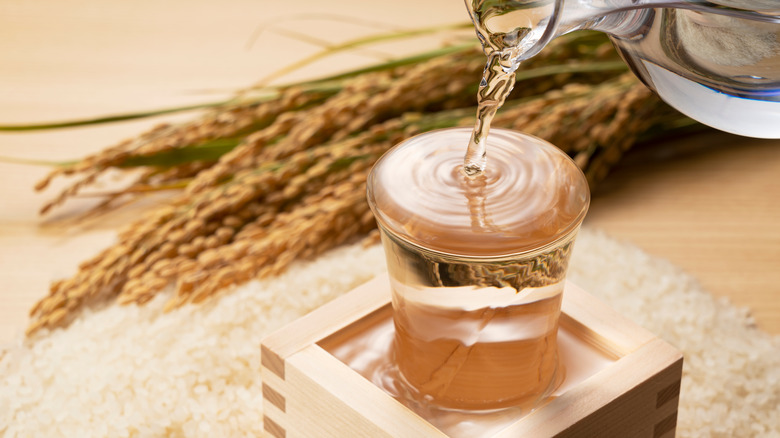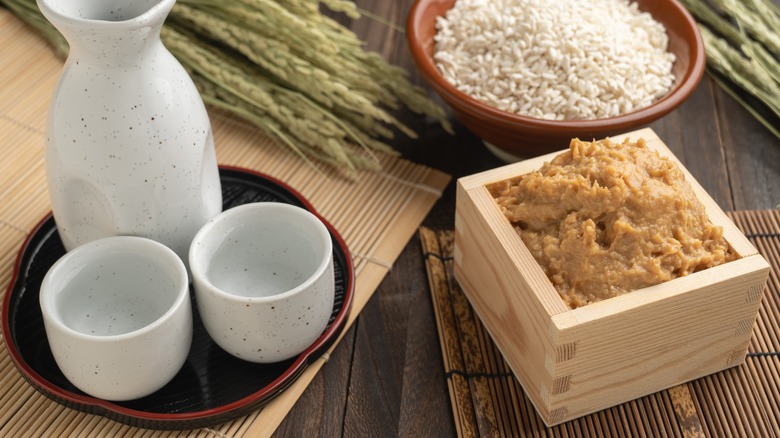Is Sake Technically Considered A Wine Or A Spirit?
There's nothing quite like a basic sake. Despite now being less popular in Japan than its different cousin, shochu, sake still holds a prominent place in the international lexicon of alcoholic beverages. It's one of the few alcohols that can be served at any temperature, and it's one of those deceptive drinks where you don't realize how much of an effect it's had until you try to stand up. Though sake is sometimes referred to as rice wine, is that an accurate description?
Not really, it turns out. Okay, so then sake must be a spirit, right? Also no. See, sake sits in this weird category that kind of defies classification. If anything, the brewing process is closest to beer — though the result certainly isn't. The answer why has to do with sake's unique production process, which truly sets it apart from any other alcoholic beverage in the world.
Sake's production process is unique
It helps to understand how various alcoholic spirits are made. Wine's process is probably the simplest, as it involves pressing grapes and then fermenting them once (whether you're talking about red or white), as yeast is used to convert the natural sugar in those grapes into alcohol. Spirits, meanwhile, are produced first using fermentation, then distillation, a process that involves using heat to separate alcohol from water. Beer is even more complicated, with a long process designed to convert the starches in wheat, barley, rice, or whatever else into sugar, which is then fermented into alcohol.
Of these, the sake production process most closely resembles beer in that starches in rice are converted to sugar and fermented. Where the two differ, though (and why sake doesn't at all resemble beer), is that the conversion of starch to sugar and the fermentation of those sugars into alcohol occurs at the same time. It's the only type of alcohol in the world that's made this way, which is why you really can't classify it as any of the above.
Sake's role in society is probably closest to wine
Part of what makes sake so intriguing is how it defies classification. Its use is probably most similar to wine, considering its alcohol content (wine's average is around 12% ABV, while sake's is around 13-17%) and appearance — not to mention its standing as a beverage regarded as generally having refinement and high cultural standing. This is likely why international audiences frequently refer to sake as "rice wine," even if that's not quite right. But Japan has also been producing wine for centuries, so sake can't truly be said to replace wine's role in society. Meanwhile, its production process might most resemble beer, but sake and beer share virtually no characteristics — and it certainly doesn't resemble a true spirit like shochu.
Ultimately, it's probably not helpful to think of sake in terms of wine vs. spirit vs. beer. It's how many people are trained to classify the entire category of alcoholic beverages, but sake doesn't fit neatly into any of those boxes. Sake is sake, and there's no reason to try to claim it's anything else.


